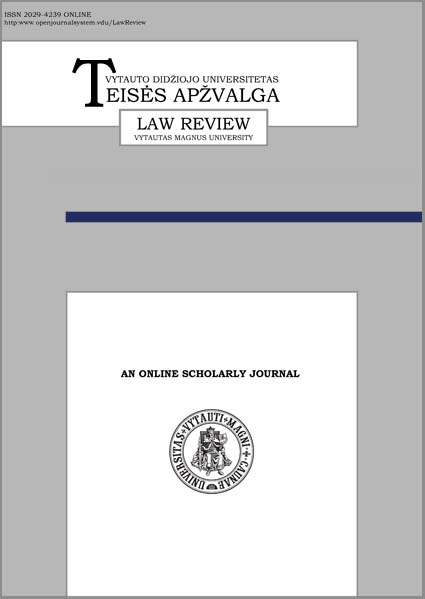Should Fully Autonomous Artificial Intelligence Systems Be Granted Legal Capacity?
Should Fully Autonomous Artificial Intelligence Systems Be Granted Legal Capacity?
Author(s): Mindaugas NaučiusSubject(s): Law, Constitution, Jurisprudence
Published by: Vytauto Didžiojo Universitetas
Keywords: Legal capacity; Artificial intelligence; Fully autonomous; Autonomy;
Summary/Abstract: The aim of this article is to address the issue of granting legal capacity to artificial inteligence systems. In order to approach the solution to the problem addressed, the article includes several aspects, relevant in order to achieve it. To begin with, the general concept of legal capacity is introduced. Following this aspect, the main features of both natural and juridical persons are addressed, in order to become familiar with the content of legal capacity, or in other words, to be aware – what features do these individuals, which are at present granted legal capacity, possess. Furthermore, the different topic of artificial intelligence is explained, having the aim to clarify, what are the features of artificial intelligence, and whether these features conform with the criteria, which are needed in order to be granted legal capacity. Following this, the additional questions are being discussed, which are relevant while deciding the present issue. Finally, the conclusions of the research have been made, regarding the presented problem.
Journal: Teisės apžvalga
- Issue Year: 2018
- Issue No: 1(17)
- Page Range: 113-132
- Page Count: 20
- Language: English

